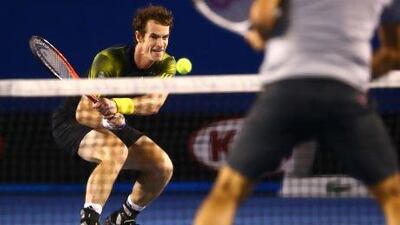At the outset, this is not an excuse for Andy Murray's loss to Novak Djokovic in Sunday's final of the Australian Open. But clearly the two-time defending champion was on fresher legs having played his semi-final a day earlier than the Scot.
Djokovic needed just 89 minutes to brush aside David Ferrer in the first men's semi-final on Thursday. A day later, Murray was stretched to five sets and 240 minutes by Roger Federer.
In a sport as physically demanding as tennis, and especially in the case of two finalists who take gruelling to a different level, every hour of recuperation counts. And 24 hours is too big an advantage.
Of course, Murray did not blame his defeat or the blisters on his feet on the lesser period of rest. But he did hope the Australian Open organisers will have a look at the scheduling. "Obviously, the US Open have made some adjustments with their scheduling to try and make it easier for the players to recover," he said.
If both the men's semi-finals were played on the same day, could we have seen a different result in the final? That would be a conjecture. Djokovic played the second semi-final last year and came back to defeat Rafael Nadal in the longest final in history.
Still, it would be fairer if both the finalists went into the championship decider without one of them having rested 24 hours more than his opponent.
The US and French Opens, and Wimbledon have their semi-finals on the same day, so why not in Melbourne?
Follow us

